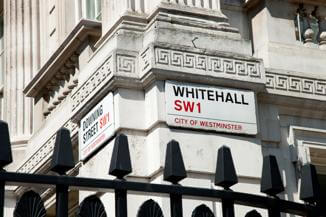From 27 November 2025, charity trustees will gain new statutory powers to make small ex-gratia payments without prior Charity Commission authorisation.
Section 15 of the Charities Act 2022 introduces this limited power where specific conditions are met. This provides welcome flexibility for charities facing moral obligations that fall outside their strict legal powers.
What are ex-gratia payments?
Ex gratia payments are payments made by a charity where there is no legal obligation to do so, but where trustees feel there is a moral obligation to act.
Common examples include:
- Compensating individuals who have suffered loss through no fault of the charity.
- Returning property where there is a moral (but not legal) case for doing so.
Until now, charity trustees generally required authorisation from the Charity Commission or the courts. This created administrative burdens and delays even for modest sums.
The new statutory framework
The new power allows charity trustees to make applications of charity property or waive the charity's entitlement to receive property where they meet specific conditions.
Conditions for using the new statutory power
Three conditions must be met:
- The value of the property must not exceed the relevant threshold (see below).
- The charity trustees must have no other power to take the action (apart from this section or section 106 of the Charities Act 2011).
- In all the circumstances, the charity trustees must be satisfied that they could reasonably be regarded as being under a moral obligation to take the action.
The requirement for a "moral obligation" is central to the provision. Trustees must demonstrate that, whilst there is no legal duty to make the payment, compelling moral or ethical reasons exist for doing so. This is a matter of judgement, and trustees should carefully document their reasoning.
Income-based thresholds
The thresholds for ex-gratia payments vary according to the charity's gross income in its last financial year:
- £1,000 for charities with gross income not exceeding £25,000.
- £2,500 for charities with gross income exceeding £25,000 but not £250,000.
- £10,000 for charities with gross income exceeding £250,000 but not £1 million.
- £20,000 for charities with gross income exceeding £1 million.
These thresholds are proportionate to the charity's size and resources. The Secretary of State can amend these thresholds by regulations, allowing for future adjustments without primary legislation.
Where these conditions cannot be met, the Charity Commission, the Attorney General or the court may still authorise ex-gratia payments.
Important limitations and exclusions
Governing document restrictions
The power may be restricted or excluded by the trusts of the charity. Trustees should therefore review their governing documents before relying on this provision. If the governing document expressly prohibits ex-gratia payments or contains restrictions that would prevent their use, the statutory power will not override these provisions.
Charities established by legislation
For charities established by legislation, or whose purposes or functions are set out in legislation, the power is not automatically disapplied simply because the legislation prohibits application of property otherwise than as set out in that legislation. This ensures that charities with statutory frameworks can still benefit from the new power in appropriate circumstances.
Restitution of objects to overseas owners
In January 2024, the Department for Culture, Media and Sport issued important clarification regarding the scope of the new power. Any ex-gratia payment which would result in the restitution of objects by charities to an overseas owner must be pre-authorised by the Charity Commission, even if it falls within the financial thresholds set out above.
This carve-out reflects the particular sensitivities around cultural property and restitution claims, ensuring that such decisions continue to receive appropriate regulatory oversight.
National museums and galleries
Restitutions by national museums and galleries remain entirely excluded from the ex-gratia regime. These institutions will continue to be governed by the specific legislation that manages their collections, such as the British Museum Act 1963 and similar statutes.
Practical implications for trustees
The new power offers significant practical benefits:
- Reduced administrative burden. Small ex-gratia payments can be made without the time and cost of seeking Charity Commission authorisation.
- Greater flexibility. Trustees can respond more quickly to situations where moral obligations arise.
- Proportionate regulation. The income-based thresholds ensure the power is appropriately scaled to charity size.
However, trustees should exercise this power with care. Proper governance remains essential:
- Document the moral obligation clearly in trustee minutes.
- Ensure the payment represents value for the charity in reputational or ethical terms.
- Confirm that no other power exists to make the payment.
- Check the governing document does not restrict the power.
- For any restitution matters, particularly involving overseas claims, seek specialist advice.
If you would like more information, please contact our specialist not for profit and charities team for further guidance.
Contact

Nathalie Jacoby-Danesh
Partner
nathalie.jacoby-danesh@brownejacobson.com
+44 (0)330 045 2833








































